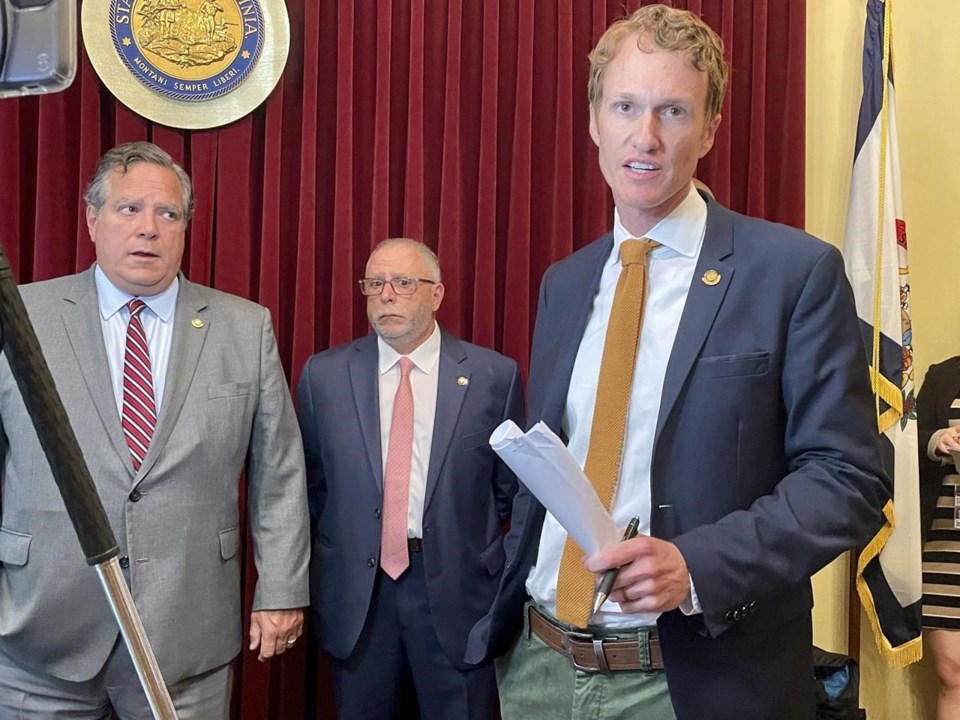CHARLESTON, W.Va. (AP) — West Virginia Gov. Jim Justice scoffed Monday at a suggestion by Democratic lawmakers to let voters decide whether abortion should continue to be allowed in the state.
The Republican governor said the state's abortion law falls under the scrutiny of the Legislature and the attorney general.
During a legislative special session initiated by Justice last month, majority Republicans failed to pass legislation criminalizing abortion.
On Friday, top Democrats asked Justice and leading GOP lawmakers to bring the Legislature back to consider a resolution to allow voters to consider a constitutional amendment for “reproductive freedom.”
Justice wanted no part of that.
“Unfortunately, this place is surrounded with constant grandstanding," the governor said at a news conference. “I think that’s what the Democrats are doing.”
Abortion had been banned after 20 weeks of pregnancy in West Virginia until the U.S. Supreme Court overturned the constitutional right to abortion. After that ruling, Attorney General Patrick Morrisey said abortion was banned completely in the state because of an 1800s-era law that had been unenforceable while abortion was federally protected.
But a Charleston judge barred the state from enforcing the ban, ruling it had been superseded by a slew of conflicting modern laws, including the 20-week ban. Morrisey has appealed the ruling to the state Supreme Court, which is expected to take up the case this fall.
“Coming down from the U.S. Supreme Court, this is the responsibility of our Legislature and our attorney general," Justice said. "And absolutely I’ve said over and over and over, I don’t want to impose anything, any ideas or anything."
"Now, if they bring me something that I cannot sign, I won’t sign it. But actually, I don’t think that’ll happen. I think our Legislature is abound with good people and they should get through this and bring me something that I will absolutely welcome and sign. And I think that’s exactly what will happen.”
In 2018, West Virginia voters approved a constitutional amendment saying that nothing in the state Constitution “secures or protects a right to abortion or requires the funding of abortion.”
During the special session, the House of Delegates passed a sweeping abortion ban that would have made providing the procedure a felony punishable by up to 10 years in prison. The measure included exceptions for victims of rape and incest, as well as for medical emergencies. The Senate passed its version that removed penalties for physicians who perform illegal abortions.
The House of Delegates quickly refused to concur with the Senate changes, instead asking for a conference committee to iron out differences among the bills. More than two weeks later, no such committee has been announced.
The West Virginia Democrats’ call for a referendum came after residents in Kansas, another state with a GOP-controlled Legislature, rejected a ballot measure that would have allowed lawmakers to tighten restrictions or ban the procedure outright. Despite the big margin, Kansas plans to recount the vote by hand.
“This is a very important issue,” West Virginia Senate Minority Leader Stephen Baldwin said in an email Monday. “We need a resolution sooner rather than later. The legislature had a chance to act and failed. We should let the people decide. This is a constitutional question, and our constitution empowers the people to decide it on the ballot.”
John Raby, The Associated Press


